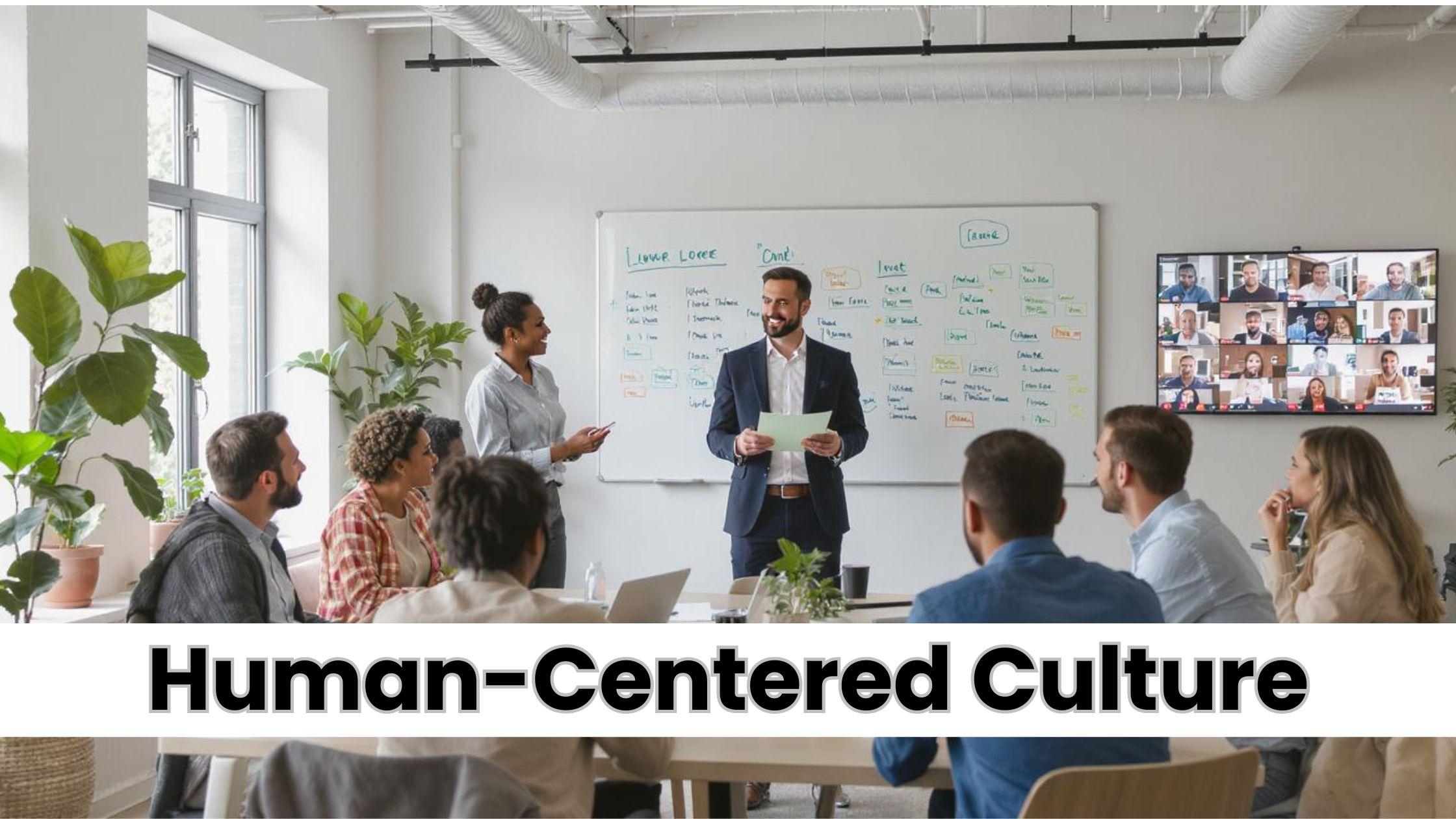Agility in Workplaces Starts With Human-Centered Culture

In a rapidly evolving business environment, organizations must be able to respond quickly to change, embrace innovation, and remain competitive. Achieving this requires more than adopting frameworks or digital tools; it begins with a Human-Centered Culture. By prioritizing the needs, well-being, and growth of employees, businesses can cultivate a workforce capable of driving agility from within. Businessinfopro explores why placing humans at the center is the key to building truly agile organizations.
The Foundation of Workplace Agility
Agility is often misunderstood as speed or flexibility alone. True agility encompasses the ability to adapt, learn, and make decisions effectively in complex situations. Human-Centered Culture provides the emotional and operational foundation for this adaptability. Employees who feel valued and supported are more likely to take initiative, contribute innovative ideas, and respond effectively to challenges, ensuring agility is embedded into daily organizational practices.
Employees as Key Change Agents
A Human-Centered Culture recognizes that employees are the engine of change. In agile organizations, individuals are empowered to make decisions, share ideas, and collaborate freely. When employees have autonomy and accountability, they become proactive contributors to innovation and problem-solving. Organizations that cultivate this environment experience faster adoption of new processes, enhanced productivity, and a stronger alignment between employee goals and organizational strategy.
Leadership that Drives Culture
Leaders play a pivotal role in embedding Human-Centered Culture. Empathy, transparency, and adaptability are essential leadership qualities that encourage agility. Leaders who actively listen, provide constructive feedback, and foster inclusion inspire employees to adopt the same mindset. This ripple effect ensures that agility is not just a procedural goal but a cultural norm embraced throughout the organization.
Building Trust for Agile Teams
Trust is critical to both Human-Centered Culture and workplace agility. Employees who trust their leaders feel confident in taking risks, proposing ideas, and making decisions. Leaders who trust their teams reduce bottlenecks and micromanagement, accelerating decision-making. Trust also nurtures psychological safety, enabling employees to collaborate effectively and innovate without fear of repercussions.
Collaboration Enhances Agility
Agile organizations thrive on collaboration. Human-Centered Culture breaks down silos and encourages cross-functional teamwork. When employees collaborate openly, knowledge is shared, ideas flourish, and solutions are generated more quickly. A culture that values collaboration ensures that teams are aligned, responsive, and capable of navigating change efficiently.
Diversity and Inclusion as Agility Catalysts
Diverse perspectives are crucial for agility. Human-Centered Culture promotes inclusivity by valuing all voices, experiences, and skills. Inclusive workplaces foster creativity, problem-solving, and adaptability, equipping organizations to tackle complex challenges. By embracing diversity, companies build a workforce capable of innovating and responding effectively to evolving market demands.
Empowerment and Ownership
Empowerment is a cornerstone of Human-Centered Culture. Employees who are given ownership of their roles and responsibilities act proactively, making decisions that drive organizational success. Empowerment reduces dependency on hierarchical approvals, accelerates execution, and encourages innovative thinking. Employees feel motivated and engaged, further strengthening workplace agility.
Continuous Learning and Development
Agile organizations prioritize learning. Human-Centered Culture supports ongoing professional development, mentorship, and knowledge sharing. Employees equipped with updated skills and insights can adapt to new technologies, shifting market trends, and evolving customer needs. Embedding continuous learning into culture ensures agility is not temporary but a long-term organizational capability.
Emotional Intelligence in Agile Workplaces
Emotional intelligence (EQ) enhances workplace agility. Human-Centered Culture nurtures EQ by fostering empathy, self-awareness, and interpersonal skills. Employees with high EQ navigate change smoothly, manage conflicts effectively, and collaborate efficiently. Integrating emotional intelligence into the organizational culture ensures that agility is both operational and relational, strengthening overall resilience.
Technology as an Enabler
While technology plays an important role, it cannot replace culture. Human-Centered Culture ensures that digital tools support collaboration, communication, and innovation. When employees are engaged and empowered, technology amplifies agility rather than dictating it. Culture-driven adoption of tools ensures maximum impact and sustainable adaptability in a changing environment.
Customer-Centric Agility
Agility extends beyond internal operations. Human-Centered Culture aligns employee engagement with customer experience, enabling organizations to respond rapidly to changing demands. Engaged employees anticipate needs, innovate solutions, and adapt processes to enhance customer satisfaction. This synergy between culture and service strengthens organizational agility in the marketplace.
Building Resilience Through Culture
Resilience is essential for sustainable agility. Human-Centered Culture supports employees emotionally, socially, and professionally, enabling them to handle setbacks effectively. Organizations that prioritize employee well-being foster a workforce that can maintain performance and adapt under pressure. Resilient employees and teams ensure continuity and long-term agility.
Embedding Human-Centered Culture for Lasting Agility
Integrating Human-Centered Culture into every aspect of organizational life is crucial for building workplace agility. This includes leadership, decision-making, collaboration, learning, and employee engagement. Organizations that focus on the human experience create an environment where agility becomes natural, enabling sustained responsiveness and innovation in the face of continuous change.
Read Full Article : https://bizinfopro.com/blogs/hr-blogs/why-workplace-agility-begins-with-human-centered-culture/
About Us : BizInfoPro is a modern business publication designed to inform, inspire, and empower decision-makers, entrepreneurs, and forward-thinking professionals. With a focus on practical insights and in‑depth analysis, it explores the evolving landscape of global business—covering emerging markets, industry innovations, strategic growth opportunities, and actionable content that supports smarter decision‑making.
- Business
- Research
- Energy
- Art
- Causes
- Tech
- Crafts
- crypto
- Dance
- Drinks
- Film
- Fitness
- Food
- Παιχνίδια
- Gardening
- Health
- Κεντρική Σελίδα
- Literature
- Music
- Networking
- άλλο
- Party
- Religion
- Shopping
- Sports
- Theater
- Wellness


